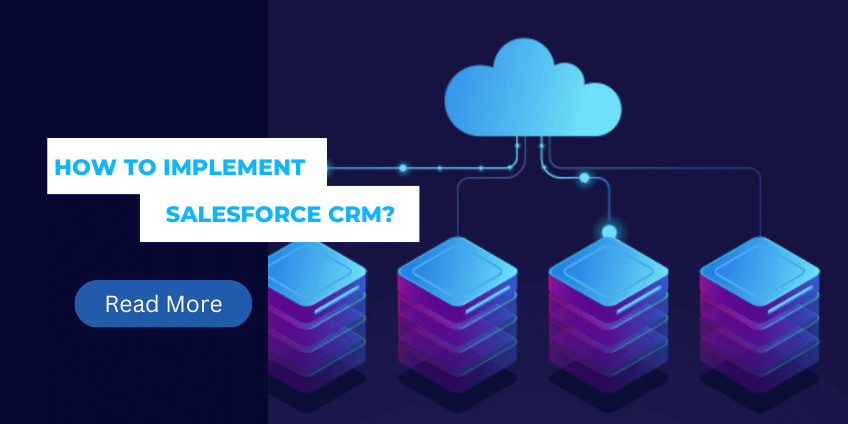Salesforce Marketing Automation
In today’s rapidly evolving digital landscape, businesses must stay ahead of the curve to maintain a competitive edge. Salesforce Marketing Automation is a powerful tool that allows companies to streamline their marketing efforts, engage with customers more effectively, and drive revenue growth. By leveraging Salesforce Automation, businesses can automate repetitive tasks, personalize customer interactions, and gain valuable insights into their marketing campaigns. This comprehensive guide will explore the key features, benefits, and best practices of Salesforce Marketing Automation, helping you understand how to implement it successfully and stay ahead in the dynamic world of marketing.
Understanding Salesforce Marketing Automation
What is Salesforce Marketing Automation?
Salesforce Marketing Automation is a suite of tools and technologies designed to automate marketing processes, manage customer relationships, and enhance the overall marketing strategy. It encompasses various functionalities, including email marketing, lead generation, customer segmentation, and analytics. By automating these processes, businesses can save time, reduce manual efforts, and focus on strategic initiatives that drive growth.
Additionally, understanding the Evolution of Marketing Automation can offer valuable insights into how the field has transformed.
Key Features of Salesforce Marketing Automation
1. Email Marketing
One of the core components of Salesforce Automation is its robust email marketing capabilities. Marketers can create personalized and targeted email campaigns, automate email sequences, and track engagement metrics. This ensures that customers receive relevant content at the right time, enhancing their overall experience with the brand.
2. Lead Generation and Scoring
Salesforce Automation allows businesses to capture leads through various channels, such as web forms, social media, and landing pages. It also includes lead scoring mechanisms to prioritize leads based on their likelihood to convert. This helps sales teams focus on high-quality leads, improving their efficiency and effectiveness.
3. Customer Segmentation
Effective customer segmentation is crucial for delivering personalized marketing messages. Salesforce Marketing Automation enables marketers to segment their audience based on demographics, behavior, and engagement levels. This ensures that marketing efforts are tailored to the specific needs and preferences of different customer groups.
4. Analytics and Reporting
Data-driven decision-making is at the heart of successful marketing campaigns. Salesforce Automation provides comprehensive analytics and reporting tools to measure the performance of marketing initiatives. Marketers can track key metrics, such as open rates, click-through rates, and conversion rates, to optimize their strategies and achieve better results.
Benefits of Salesforce Marketing Automation
1. Improved Efficiency and Productivity
By automating repetitive tasks, Salesforce Automation frees up valuable time for marketers to focus on strategic activities. This leads to increased efficiency and productivity, allowing businesses to achieve more with fewer resources.
2. Enhanced Customer Engagement
Personalization is key to effective marketing. Salesforce Automation enables businesses to deliver personalized content and experiences to their customers. This fosters stronger relationships and increases customer loyalty and retention.
3. Data-Driven Insights
With robust analytics and reporting tools, Salesforce Automation provides valuable insights into customer behavior and campaign performance. This data empowers marketers to make informed decisions, refine their strategies, and achieve better outcomes.
4. Scalability and Flexibility
Salesforce Marketing Automation is designed to scale with your business. Whether you’re a small startup or a large enterprise, the platform can accommodate your needs and grow alongside your organization. Its flexibility allows for customization and integration with other tools and systems, ensuring a seamless marketing ecosystem.
Best Practices for Implementation
- Define Clear Objectives: Before implementing Salesforce Automation, it’s essential to define clear objectives and goals for your marketing efforts. Whether it’s increasing lead generation, improving lead nurturing, or driving conversions, having clear objectives will guide your strategy and implementation.
- Segment Your Audience: Segment your audience based on demographics, behavior, and preferences to deliver more targeted and personalized messaging. Use segmentation to tailor your campaigns to specific audience segments and improve engagement and conversion rates.
- Create Compelling Content: Content is key to successful marketing automation. Create compelling, relevant content that resonates with your audience and aligns with their needs and interests. Use a mix of formats, such as emails, blogs, videos, and social media posts, to engage with your audience across different channels.
- Monitor and Measure Performance: Continuously monitor and measure the performance of your marketing campaigns using key metrics such as open rates, click-through rates, conversion rates, and ROI. Use this data to identify areas for improvement, optimize your campaigns, and drive better results over time.
- Invest in Training and Education: Provide comprehensive training and education for your marketing team to ensure they have the knowledge and skills to leverage Automation effectively. Offer ongoing support and resources to keep them updated on new features and best practices.
For those new to marketing automation, our Quick Start Guide to Marketing Automation Implementation provides a step-by-step approach to get started.
Conclusion:
Salesforce Marketing Automation is a game-changer for businesses looking to streamline their marketing efforts, enhance customer engagement, and drive revenue growth. By leveraging its powerful features, businesses can automate repetitive tasks, deliver personalized experiences, and gain valuable insights into their marketing campaigns. Implementing Salesforce Automation with clear goals, effective segmentation, engaging content, and continuous optimization will help you achieve remarkable results and stay ahead in the competitive marketing landscape.
Author Spotlight

Chandan K. Sharma
An entrepreneur and author with a deep passion for technology, CRM, and digital marketing. Chandan is a versatile content creator and expert in CRM, sales automation, and marketing automation. He combines creativity with strategic thinking to deliver innovative, scalable solutions that help businesses streamline operations and drive growth.
